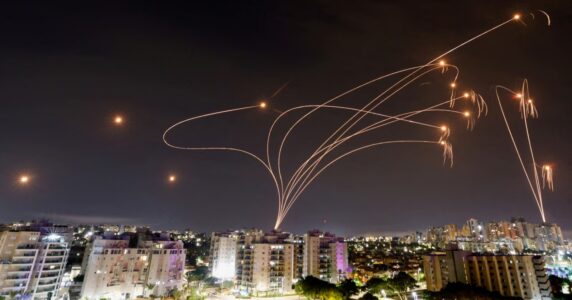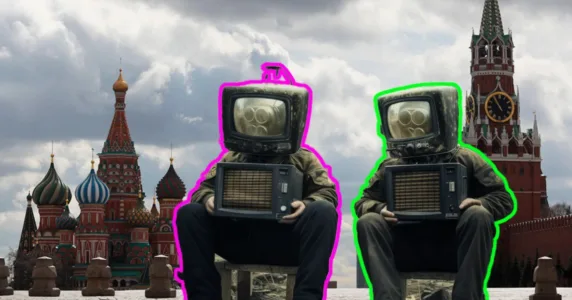Navigation and useful materials
Disinformation can take various forms. Straightforward, intrusive or aggressive propaganda is easy to recognize. However, when it becomes subtler, it is more difficult to counter.
Disinformers are not necessarily outright liars. That is why many experts are inclined to replace the term with “malinformation”. It is enough to present information selectively, structure a message in a certain way or place emphasis, while keeping a semblance of objectivity, impartiality and disinterestedness. And thus create a distorted information picture.
Strana.ua is an online media outlet that has been repeatedly mentioned in the monitoring of public organizations and international partners as one that communicates Russian propaganda.
We have analyzed three topics recently covered by Strana. All the materials contained exaggeration, distortions, outright support of one of the parties, coverage of minor events and phenomena as global trends.
When covering the US recognition of the Armenian genocide in Turkey — a topic that does not seemingly concern Ukraine directly — Strana.ua actively promotes anti-Ukrainian narratives. The media extrapolates the geopolitical situation to the Ukrainian context, without calling Crimea “Russian”, but stating that the country, which is seen by Ukraine as an ally on the Crimea issue, may allegedly recognize it.
Such actions make an impression that Ukraine is losing allies, therefore the issue of Crimea’s ownership is shaky and can be reconsidered on the world stage. This effect is not achieved by outright lies, but by a selection of facts, silencing and substitution of concepts.
Here are three news reports published on the website in late April—early May:
- “You will answer for Chingachgook!” What Biden’s recognition of the Armenian genocide means for Ukraine and Turkey
- In response to Biden’s recognition of the Armenian genocide, Turkey offered to recognize Crimea as Russian
- Turkey wants to recognize Crimea as Russian so that there are no NATO ships in the Black Sea
The humorous phrase in the title of the first article is hardly appropriate when it comes to genocide. However, the materials themselves may seem quite a serious analysis. If you ignore the fact that their authors exaggerated and dramatized the situation.
The intention to recognize Crimea as Russian is in fact the position of the pro-Russian Vatan party, which has no influence on political life in Turkey, receiving tenths of a percent in elections. The website silences this fact. Neither does it cite Turkey’s official position on the Crimea issue.
Another example of manipulation is coverage of the situation around Roman Protasevich. The website published reports that coincided with the official position of Belarus: the capture of Protasevich was not planned; it is purely accidental; he confesses to the crimes committed without pressure; he didn’t go the front as a journalist, but as a fighter of one of the volunteer groups.
- Protasevich joked that the KGB injected him with truth serum
- Cooperation with the authorities and tears are Protasevich’s own choice
- “The trip to Donbas was a mistake.” Protasevich confessed to an impulse of military romanticism on service of “Azov”
- Ukraine rejected the Belarusian passenger flow because of Protasevich (And he made friends with Lukashenko!)
Summing up, the media states: “Protasevich revealed all the secrets of the opposition movement, which, according to him, is just a mercenary agency of Warsaw and Vilnius. The oppositionist claims that he was handed over to the Belarusian authorities by his own people. His confession shows that the regime is opposed not by a group of moral authorities or revolutionary romantics fighting for democracy, but by a bunch of mercantile cynics who behave like spiders in a jar.” The material does not contain a single word about the Belarus practice of systematic torture against political dissidents, or about the tradition of beating out necessary testimonies for camera.
Thus, without saying it directly, Strana whitewashes the Lukashenko regime, which has taken a hostile stance towards Ukraine, and presents the Ukrainian position as unreasonable, hypocritical and inconsistent.
Now let’s see how Strana.ua covers the most painful topic for Ukraine — Russian aggression. If you take the recent materials upon a relevant request, you can see the following picture: allegedly Ukraine itself is guilty of the conflict; fuels it; brought it to the point of no return; the Ukrainian army kills children; the West abandoned Ukraine; and finally, the conflict is strongly associated with the far-right groups.
Let’s look at specific examples:
- The death of people in Donbas shows that our society is sick
- “In order to incite war”. How 4-year-old Vladik Dmitriev died and what it means for the situation in Donbas
- “LPR” accused the Armed Forces of Ukraine of shelling a school and kindergarten
- “Point of no return for Donbas”. Seven main questions about airstrike on Luhansk by the Armed Forces of Ukraine 7 years ago
- “Painted a giant target on Ukraine’s back”. What is expected from the meeting of Biden and Putin in the West and in Russia
- French senators demanded the Foreign Ministry respond to the situation with far-right groups in Ukraine. What does this mean?
It is noteworthy that the site adheres to the generally accepted practice in Ukraine — to put DPR and LPR between quotation marks and add “so-called” to them and in some places Russia can even be called “aggressor”. Besides, negative information is mixed with neutral news (but never with positive news about the Ukrainian army). In this way the effect of “friends” is achieved. Not very attentive readers perceive such messages as an intra-Ukrainian (socially acceptable) position. However, these are misleading markers, because the main broadcasters of the war in the East, its interpreters are Russian politicians and “experts” or representatives of the “people’s republics”. In particular, the boy’s death is being “investigated” with reference to those who accuse the Ukrainian army of a deliberate war-inciting provocation.
Avoiding direct accusations against Ukraine, which would be understood as external and clearly hostile, and thus would have limited influence and narrower audience, Strana.ua, with the help of inconspicuous manipulations, presents the position of the aggressor as justified, and the position of Ukraine – as “specific” (read: false).
We read: “The Ukrainian authorities and the Verkhovna Rada reacted in their own way to the death of a 4-year-old boy Vladik Dmitriev in the non-government-controlled territory of Donbas, whose death is blamed on Ukraine in the “DPR” and Russia. The Ukrainian side denies these accusations. The parliament has registered a draft resolution on honoring the memory of children who died “as a result of armed aggression of the Russian Federation.” The text of the document has not been published yet, but its title speaks for itself. We will remind, the four-year-old boy who was on a visit to his grandmother near Donetsk was killed by an explosive device that might have been dropped from a drone.”
The example of this message shows that the aggressor’s position is presented as the main one, and Ukraine denies it, as if it does not have enough arguments for it.
It should be reminded that there is no evidence of the boy’s death due to an explosive device from a Ukrainian drone. The Ukrainian army did not launch a drone in the direction of Oleksandrivsky, where the child died. In addition, Russian electronic warfare systems are located in this area, so the Ukrainian drone could not reach it.
In fact, it was a multi-level information operation to discredit Ukraine and the Ukrainian army. At one time, we together with public organizations explained how it was conducted.
The above disinformation techniques show how unobtrusively and even discreetly narratives can be communicated. What can be done to avoid falling victim to such propaganda?
Practice information hygiene. Do not read dubious sources, choose only those media that adhere to journalistic standards and have clear funding.
If you have found a spelling error, please, notify us by selecting that text and pressing Ctrl+Enter.



